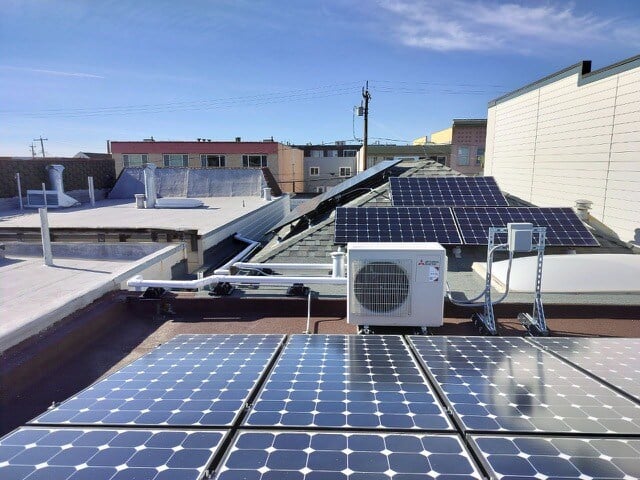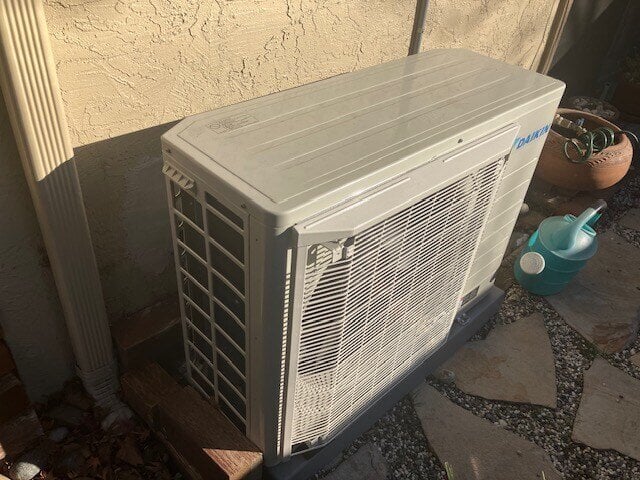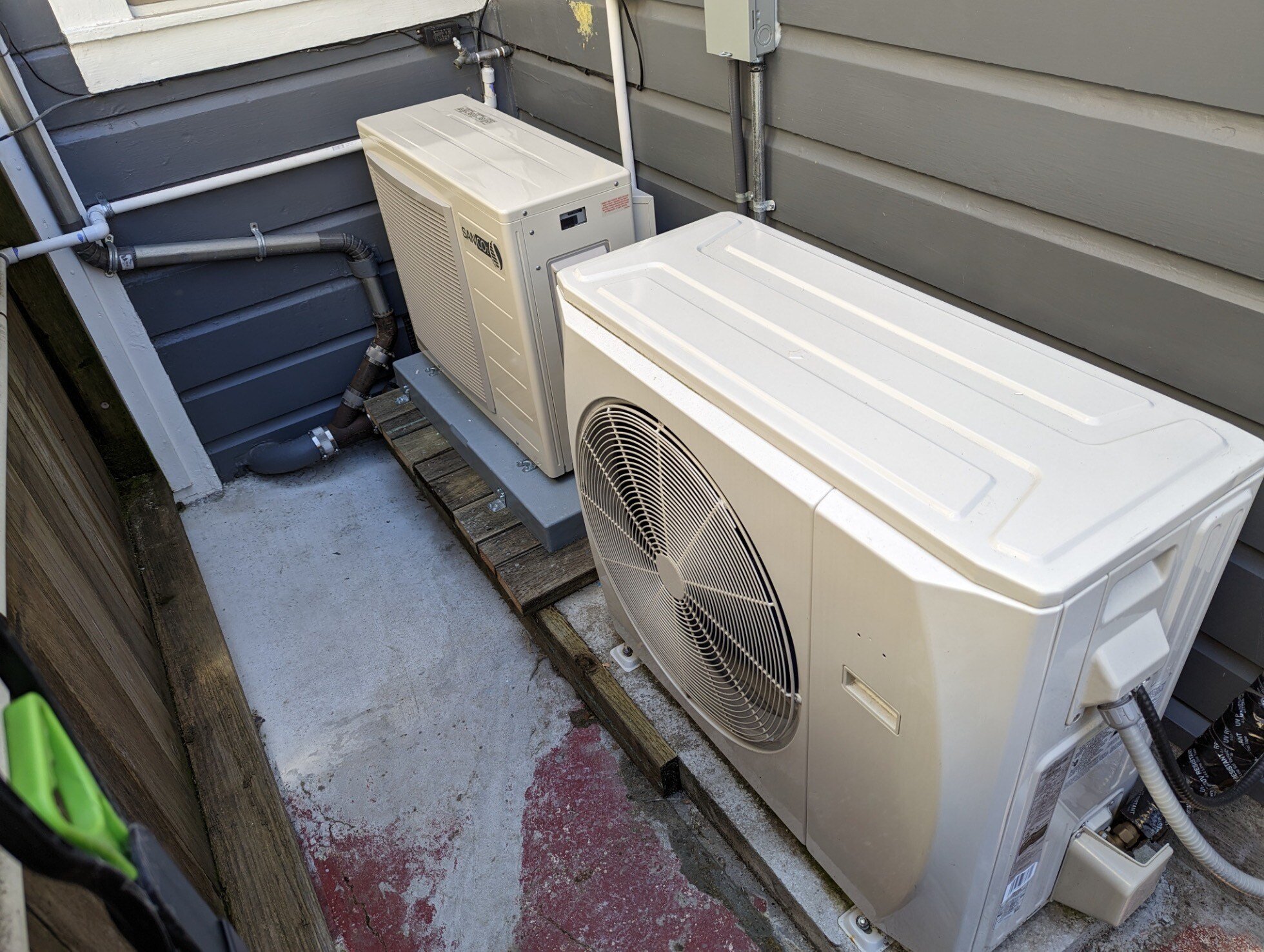Heat Pumps vs. Furnaces: How to Decide
Article updated August 22, 2024
There are many HVAC heating options available. In cold areas, two main options are a traditional heating furnace and a cold climate heat pump.
Both options have advantages, but making a decision without expert advice is difficult. This guide will provide relevant information and guidance for selecting the best heating option for your home.
- What Are the Differences Between Heat Pumps and Furnaces?
- Pros and Cons of Furnaces
- Pros and Cons of Heat Pumps
- Furnace vs. Heat Pump: Which is Right for You?
What Are the Differences Between Heat Pumps and Furnaces?
To fully understand the pros and cons of each option, it’s important to understand how heat pump and furnace technology work.
Historically, the heating furnace has been the most commonly used home heater in America. However, according to the Air-Conditioning, Heating, and Refrigeration Institute, Americans bought 21 percent more heat pumps in 2023 than the next-most popular heating appliance, fossil gas furnaces.
Furnaces can run on various power sources such as electricity, natural gas, propane, or oil. A furnace only heats your home. Furnaces ignite burners inside the furnace cabinet, which heat a heat exchanger, warming up the air that circulates throughout your home. As long as there is good ductwork and regular maintenance, they can efficiently heat your home.
In contrast, a heat pump uses very different technology, enabling it to perform a range of functions, including heating, cooling, filtering, and dehumidifying. A heat pump can replace all of your HVAC equipment, including your furnace and air conditioner.
A heat pump operates on a refrigeration cycle. Heat pumps use electricity to transfer heat from the outside air to the inside of your home. In cooling mode, the heat pump works by removing heat and humidity from the indoor air and transferring it outside. During the winter, the heat pump takes heat from the outside and transfers it indoors. In the summer, the process is reversed, with the heat pump removing heat from the indoor air and transferring it outside. Although this may seem like advanced technology, it has been around for decades and is similar to the technology used in fridges and air conditioners.
While a heat pump is an excellent all-in-one solution, it's important to consider its limitations in cold climates. In colder temperatures, the heat pump may not be as effective, and supplementary heating may be required. However, cold climate heat pump technology has improved so that heat pumps are still effective at up to -20 degrees Fahrenheit. Unlike furnaces, heat pump systems don't require ductwork, which is a significant benefit when heating older homes.
Heat pumps come in various types, including air source, water source, and ground source (geothermal), each with its advantages and disadvantages. We will focus on air-source heat pumps, which are the most common for household use, but you can find information on all types of heat pumps.
Heat pumps use electricity, but they are far more energy efficient than electric furnaces, making them the most efficient HVAC system available. The reason heat pumps can perform multiple functions so well (and efficiently) is that they transport heat rather than produce it.
Pros and Cons of Furnaces
Furnaces are a popular choice for many reasons. They have a lower initial installation cost than heat pumps, and their technology is familiar to most people. Many homeowners also find furnace heat to be cozy, dry, and comfortable. They can heat up a home quickly and work with gas, oil, propane, and electricity.
However, furnaces also have major drawbacks.
- Furnaces consume much more energy than heat pumps.
- Furnaces often require expensive ductwork.
- While operating, furnaces can be loud and smelly, especially with heating oil.
- Furnaces also have a hard time maintaining a consistent temperature throughout the day, which can be inconvenient.
- They also require more maintenance than heat pumps and may not last as long, depending on the brand.
- Furnaces can contribute to air impurities, which can be harmful to people with respiratory issues.
Pros and Cons of Heat Pumps
Heat pumps have many advantages. Here's a quick rundown of the major benefits heat pumps can deliver.
- Rather than a standalone system, heat pumps are an all-in-one system that can replace all of your existing HVAC technology.
- They are easy to maintain and only require service once a year.
- Cold climate heat pump systems are three times as efficient as furnaces and are the least expensive HVAC option over the lifespan of the system.
- Heat pumps are eligible for federal home improvement tax credits. Some utility companies also offer incentives for heat pump upgrades.
- Heat pumps run on electricity, which is cleaner than burning fossil fuel and better for your indoor air quality.
- Heat pumps provide comfortable heat, as the air is constantly circulated and doesn't dry out the air in the winter.
- Heat pumps don't require ductwork, which can save you a lot of money on installation.
However, there are two major drawbacks to heat pumps. In super-cold climates, a backup heating source may be needed for rare, extremely cold weather events. Heat pump installations also have a higher upfront cost than furnaces. The good news is that some homeowners may qualify for a heat pump installed by professionals at no upfront cost, either through rebates from manufacturers or government programs. The Inflation Reduction Act offers all homeowners a 30% tax credit up to $2,000 when installing a qualifying heat pump.
Furnace vs. Heat Pump: Which is Right for You?
Ultimately, the decision to install a furnace or a heat pump depends on your circumstances. If you prioritize energy efficiency, comfort, long-term costs, and ease of maintenance, a heat pump may be the best choice. But if you prioritize initial installation cost and familiarity with technology, a furnace may be the better option.
Making the right choice between heat pumps and furnaces for your home energy makeover depends on your personal preferences and your local climate. To help guide your decision, here are some general guidelines:
Heat pumps may be the right choice if you:
- Want the best HVAC system available, and you're willing to pay more upfront (or you qualify for a no-upfront-cost heat pump installation). Keep in mind the new tax credit will greatly reduce upfront costs.
- Prefer a single system for all your climate control needs, including AC and humidification. Remember that modern cold-climate heat pumps can operate even in the coldest winter conditions.
- Prefer stable energy pricing
- Don't have ductwork or older, inefficient ductwork in need of significant repairs.
- Want the most energy-efficient HVAC system possible
- Have an older or complicated house that's difficult to heat evenly
- Have air quality concerns
- Want room-by-room temperature control
- Want a low-maintenance system
A furnace may be the right choice if you:
- Prefer the lowest possible upfront installation cost
- Don't require air filtering or room-by-room temperature control
- Have ductwork installed in your house in excellent shape with few to no duct leaks
- Don't mind having a less-efficient HVAC system
- Can handle more maintenance
- Don't have air quality concerns
- Don't require air conditioning or don't mind maintaining a separate AC system with additional costs
After years of research and working with homeowners, QuitCarbon believes that most people will be happier with a heat pump in the long run. Regardless of which heating system you choose, upgrading your insulation and sealing air leaks are critical home improvements that can extend the lifespan of your HVAC system and reduce energy waste year-round.




